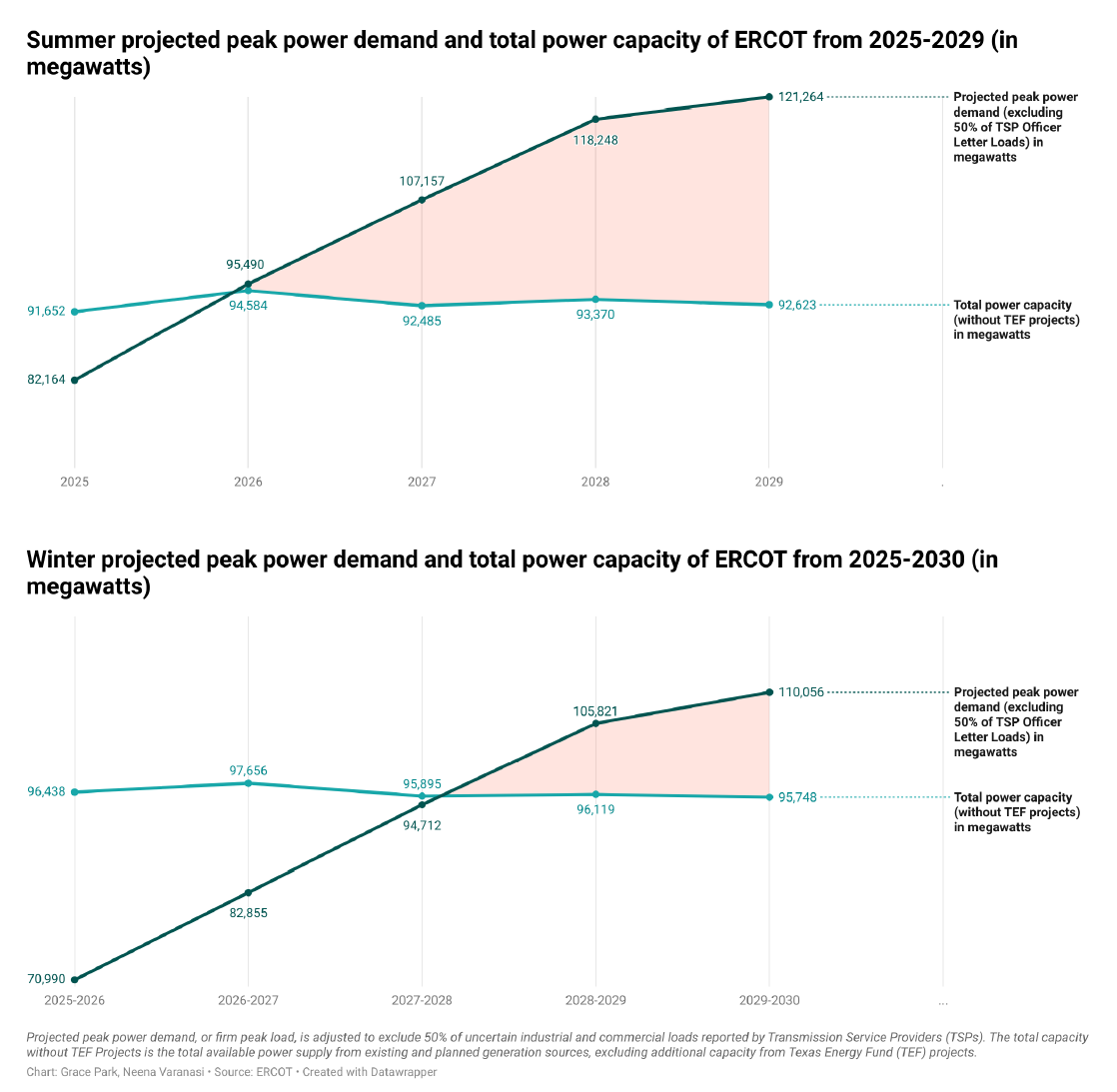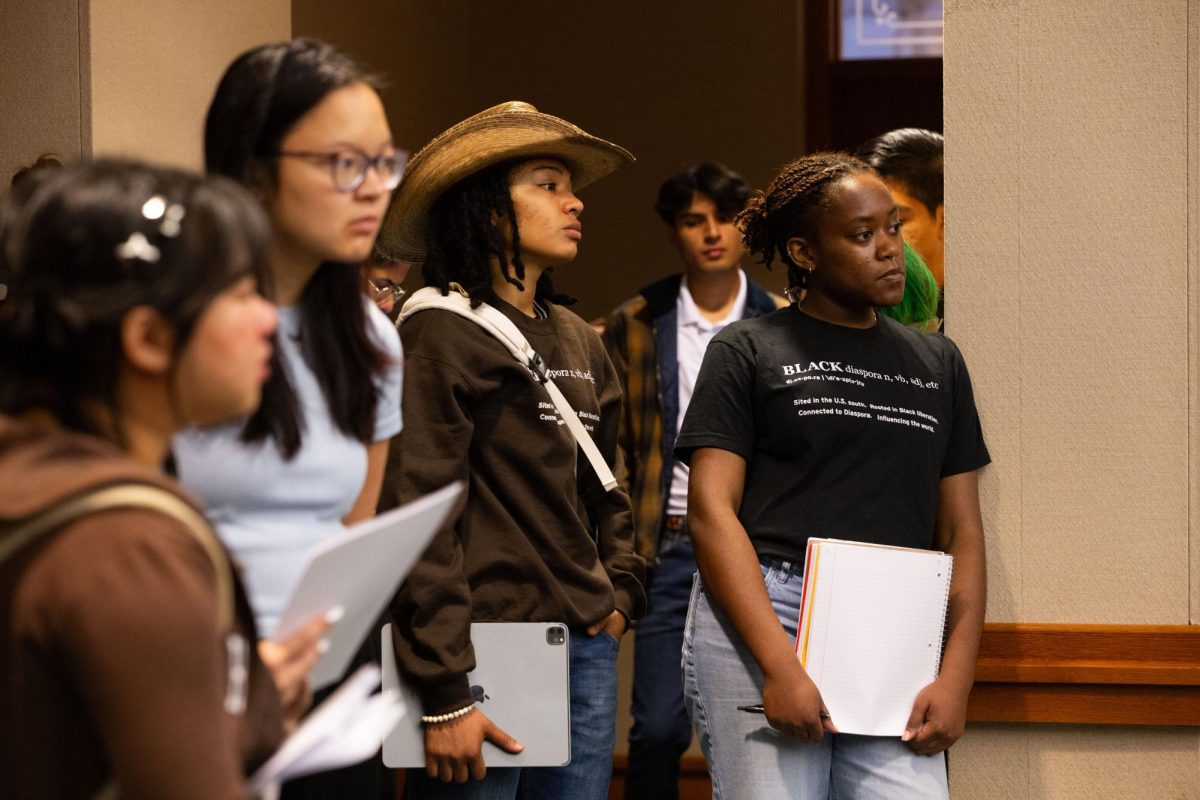Gov. Rick Perry appeared in court Thursday as his lawyers attempted to refute indictments for his abuse of power charges.
A grand jury originally prosecuted Perry in August for abuse of an official capacity and coercion of a public servant — Travis County District Attorney Rosemary Lehmberg. Perry vetoed state funding for Lehmberg’s investigative unit after she refused to step down following her drunken driving conviction.
Thursday’s proceedings focused on two issues — whether special prosecutor Michael McCrum was properly sworn in as the case’s prosecutor and whether documents relating to the case were filed correctly.
McCrum said the defense was not challenging the oath properly because there is no law that requires a written order to be filed about it.
“There’s a procedural bar to what they’re trying to do,” McCrum said. “Mr. Perry and his lawyers can’t invent or create a law that’s not there.”
Tony Buzbee, Perry’s lawyer, admitted the defense’s argument was based on a technicality, but he said the judge should still follow the letter of the law.
“If you’re going to prosecute someone, you’d better follow the letter of the law,” Buzbee said. “If Mr. McCrum did not properly qualify as attorney pro tem, that means everything he’s done up to this point is absolutely void.”
Buzbee also said McCrum did not follow the correct sequence of events when signing his oath and took the oath before signing his anti-bribery statement.
“It’s very clear that he did it absolutely backwards,” Buzbee said. “That means he failed to qualify. He cannot act. Game over.”
McCrum repeatedly said the defense team was using red herrings to expand its scope of allegations on the oath and discussing matters not relevant to the issues of the case. He said the oath was properly administered and read from an affidavit about the oath of office document in which Judge Bert Richardson swore him in as attorney pro tem.
“The point is — I have the authority; I took the oath,” McCrum said. “This is a non-issue. The defense is asking the court to create a new law to suit Mr. Perry’s personal situation.”
Additionally, Buzbee called the case “a comedy of errors” and argued necessary documents relating to the case were not in the correct file.
McCrum said all documents were filed, stamped and available to the public.
“Not only do the documents have a file stamp showing they were … filed with the district court, all of the documents were freely open to the public,”
McCrum said. “All anybody ever had to do was ask for them.”
Several witnesses were called to the stand, including Linda Estrada, senior employee in the Travis County district clerk’s office, and Virginia Vasquez, a court coordinator from the 390th district court who removed herself from the case. They were questioned about whether documents relating to Lehmberg’s recusal were filed in the right place. Estrada’s and Vasquez’s testimonies revealed that oath-related documents were in the courthouse in two different places because no case file was created before the indictment.
Richardson said instead of issuing a simple ruling, he would need to issue findings. He said he would talk with both sides and issue a ruling by next Wednesday or Thursday.
After the hearing, Perry said he stood by his decision to veto the funding.
“[The constitution] clearly outlines the authority of any governor to veto items at his or her discretion,” Perry said. “I stand behind that authority, and I would make that veto again. Exercising proper jurisprudence is not a technicality. It is a requirement essential for the rule of law.”
Perry said the proceeding would not affect his duties as governor.
“I’m able to multitask pretty good, so the question is, ‘Am I able to get my work done?’ which I am,” Perry said. “Over the last six months, we’ve had multiple issues of pretty major size and scope to deal with. … I think we’ve handled all those pretty well.”




















